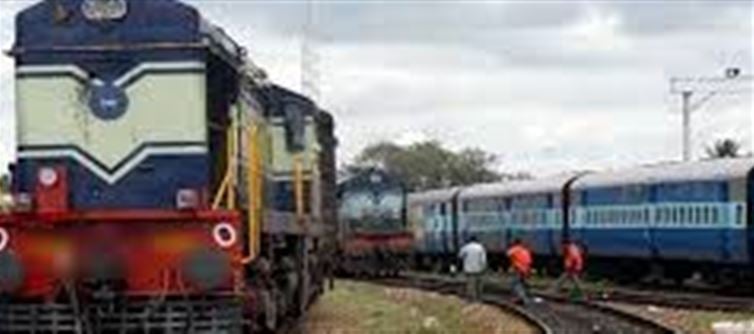
The festive season is fast approaching, and with it, a welcome announcement from the government that’s bound to bring relief to travelers. In a recent Union cabinet meeting led by prime minister Narendra Modi, the government made an exciting decision to launch 12,000 special trains to facilitate smooth travel for millions of passengers during the diwali and Chhath festivals. Here’s everything you need to know about this fantastic initiative!
1. 12,000 Special Trains: A Lifeline for festival Travelers
As the country prepares to celebrate diwali and Chhath, two of the most important festivals in India, the government is rolling out 12,000 special trains to meet the massive surge in passenger demand. These trains will operate across various routes, ensuring that people can return home to celebrate with their families without the usual travel hassles.
2. Why This Decision Matters
Festival travel often leads to overcrowded trains, long waiting times, and last-minute ticket unavailability, causing a lot of inconvenience to passengers. Recognizing this, the government’s decision to run special trains is aimed at reducing the stress of festive travel, ensuring that more people can travel comfortably and safely.
3. Where Will These Trains Operate?
The special trains will be running on key routes that are most frequented during the diwali and Chhath seasons. These include routes connecting major cities to smaller towns, as well as popular pilgrimage destinations. So, whether you’re traveling to Uttar Pradesh, Bihar, or beyond, there will be more trains available to accommodate the rush.
4. Booking Process: Early is Better
Since these trains are meant to handle the increased demand, passengers are advised to book their tickets as early as possible. The special trains will likely fill up quickly, so securing your seat in advance will save you from the stress of last-minute bookings. You can check availability and book tickets through the official railway portal or at your nearest railway station.
5. Safety Measures in Place
Given the ongoing health concerns, the government is expected to implement safety measures on these special trains. Expect adherence to COVID-19 protocols, including sanitization of trains, social distancing, and mask mandates to ensure the safety of all passengers.
6. Perfect for diwali and Chhath Celebrations
Both diwali and Chhath are festivals that bring families together. diwali, the festival of lights, and Chhath, a worship of the sun god, are times when millions of people travel back to their hometowns. With the special trains in operation, this year’s celebrations are expected to be more accessible, allowing families to reunite and celebrate without the travel-related stress.
7. What Else Can Passengers Expect?
Apart from the special trains, the government is also looking into improving overall train services, including better facilities at stations and additional staff to assist passengers. So, you can expect smoother, more comfortable travel even during the busiest times.
Conclusion: A Festive Boost for Travelers
With diwali and Chhath around the corner, the government’s initiative to run 12,000 special trains comes as a timely and thoughtful gift for all festival travelers. Whether you're planning to reunite with family or make the most of the festive celebrations, these special trains are sure to make your journey more comfortable and less stressful.
So, plan ahead, book early, and enjoy the festivities without the worry of travel delays!
Disclaimer:
The views and opinions expressed in this article are those of the author and do not necessarily reflect the official policy or position of any agency, organization, employer, or company. All information provided is for general informational purposes only. While every effort has been made to ensure accuracy, we make no representations or warranties of any kind, express or implied, about the completeness, reliability, or suitability of the information contained herein. Readers are advised to verify facts and seek professional advice where necessary. Any reliance placed on such information is strictly at the reader’s own risk.
.jpg)




 click and follow Indiaherald WhatsApp channel
click and follow Indiaherald WhatsApp channel